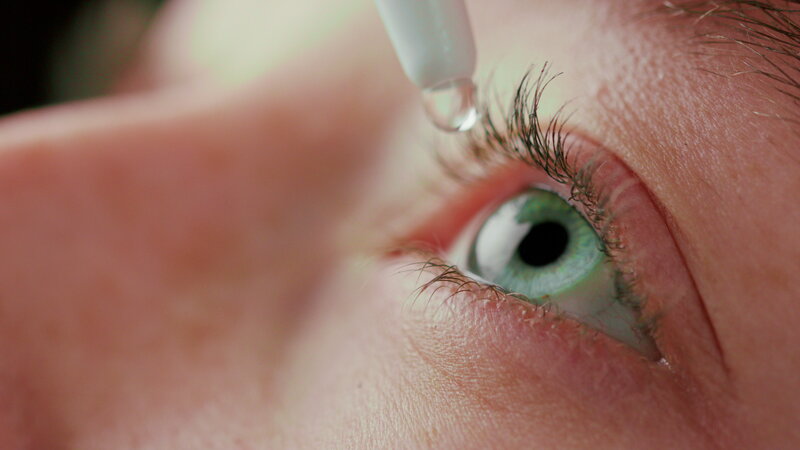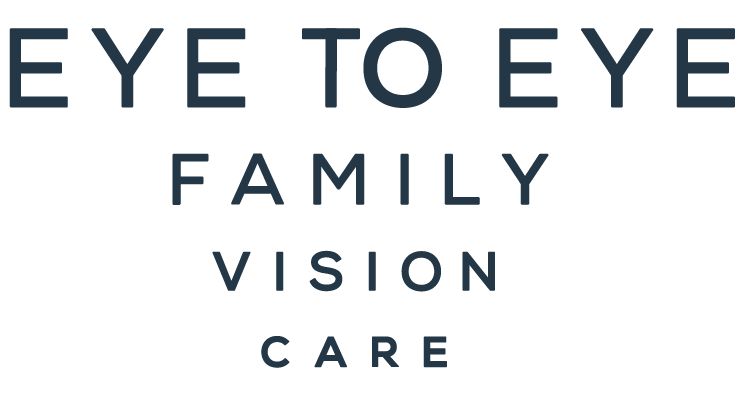Are There Any Eye Drop Side Effects?

Over-the-counter (OTC) eye drops are a go-to treatment for red, itchy, dry, or irritated eyes. However, while they’re typically considered safe, there can be side effects. Also, they are best used for temporary issues.
However, long-term use is more connected to adverse side effects that could be avoided with proper diagnosis and treatment by your optometrist. Similarly, using eye drops for issues requiring more serious treatment can do more harm than good.
Learn About Eye Drop Side Effects
Before diving into the side effects of OTC eye drops, we want to highlight that they differ significantly from prescription eye drops.
Prescription eye drops are the most likely to cause negative side effects. Only use prescription eye drops as directed, and never use someone else’s or an old prescription as you increase the risk of infection or make things worse instead of better. If you require prescription eye drops to treat your eye condition, you’ll be informed of the drops’ risks, benefits, and potential side effects. Always report any negative side effects to your optometrist for professional advice and instructions.
OTC Eye Drops Should Only Be Used For Temporary Relief
Over-the-counter eye drops fall into two main categories: hydrating and soothing OR treating redness and itchiness related to allergies. They are not designed to treat eye infections or most other eye conditions. Most people use eye drops temporarily to soothe irritated eyes or to minimize discomfort related to allergies.
If you use eye drops daily and suffer without them, schedule an eye exam ASAP. It’s time to check in with an optometrist to ensure you’re not suffering from an actual eye infection or other eye/vision issues.
Manufacturer defect-related issues (and recalls)
There is a current recall on several types of eye drops due to manufacturing issues that led to severe - and fatal - bacterial infections. The recalls included:
- Artificial Tears Lubricant Eye Drops, distributed by EzriCare, LLC and DELSAM Pharma.
- Brimonidine Tartrate Ophthalmic Solution, 0.15%, made by Apotex Corp.
- Purely Soothing 15% MSM Drops, made by Pharmedica USA.
Click Here to read more about these recalls and what you can do.
Eye infections due to cross-contamination
Just as you should never share eye makeup, never share eye drops. The tip of the bottle can become contaminated with bacteria or viral particles, which can then spread to your eyes via the drops. If your optometrist recommends regular use of OTC eye drops, single-use doses of preservative-free drops are the best way to minimize any risk of infection or irritation from the drops.
Minimize eyedrop contamination by:
- Ensuring the package and bottle were sealed before using them. Never use a bottle that was opened or has a broken seal before use.
- Never sharing.
- Not allowing the tip to touch the surface of the eye.
- Throwing away expired eye drops (pay attention to the expiration date!).
Again, while we aren’t fond of the waste - single-use eye drop packages are the best way to ensure you’re using sterile, uncontaminated eye drops.
Contact lens irritation
If you wear contacts, bypass standard eye drops and reach for those specifically formulated for contact lens wearers. These drops are created to minimize contact lens irritation. Some of the additives and preservatives in standard OTC eye drops can irritate the eyes when trapped under the lenses.
Allergic reactions or increased irritation
Most of the time, prescription eye drops used to treat conditions like glaucoma are most likely to cause allergies. However, we occasionally have patients who experience allergy side effects from OTC drops. In most cases, they’re allergic to the preservatives or thickening agents added to drops used to treat dry eye.
The eyes are sensitive organs and absorb chemicals like a sponge. Allergic reactions can occur swiftly and side effects can be severe. Stop eye drop use immediately if you notice any signs of allergies - like increased redness, itchiness, or irritation. If you experience blurred vision, break out in hives, swelling, or begin wheezing - contact your physician immediately for further instruction.
Similarly, some eye issues can be exacerbated by the ingredients in eye drops, so the drops cause more irritation than relief. This can happen if the eye's surface or cornea is scratched. Similarly, if something has penetrated or punctured the eye's surface, drops can help more than heal. Finally, OTC drops won’t work to cure an eye infection, disease, or more serious eye diagnosis, so using drops can make issues worse instead of better, especially if the drops irritate the eyes.
Long-term sensitivity or resistance to ingredients
Sometimes, using a particular type of eye drop for too long causes increased sensitivity and then resistance. This is almost entirely related to drops that include additives or preservatives. In some cases, the eye develops a sensitivity to the drops. In other cases, the eyes adjust to the continuous use of the drops and form less of their own lubrication, making you dependent on them.
Use Preservative-Free Eye Drops Unless Your Optometrist Says Otherwise
We recommend using preservative-free eye drops unless your optometrist says otherwise. Even in the case of eye allergies, allergy drops should be used short-term while you focus on other ways to minimize symptoms.
Single-use, preservative-free OTC eye drops (Systane, Refresh, TheraTear, etc.) are the least likely to cause problems. Make sure the label says “preservative-free.”
Learn More About Side-Effect-Free Eye Drops at Eye to Eye Family Vision Care
Are you having difficulty finding the right eye drops to provide the relief you need? Do you feel you’ve become eye drop-dependent? Schedule an exam at Eye to Eye Family Vision Care. First, we’ll perform a complete eye exam to get to the heart of why you need eye drops. From there, we’ll create a comprehensive treatment plan to ensure you minimize the use of OTC eye drops and any risks of negative side effects.
Contact us to schedule your appointment or ask questions about eye drops and potential side effects.

